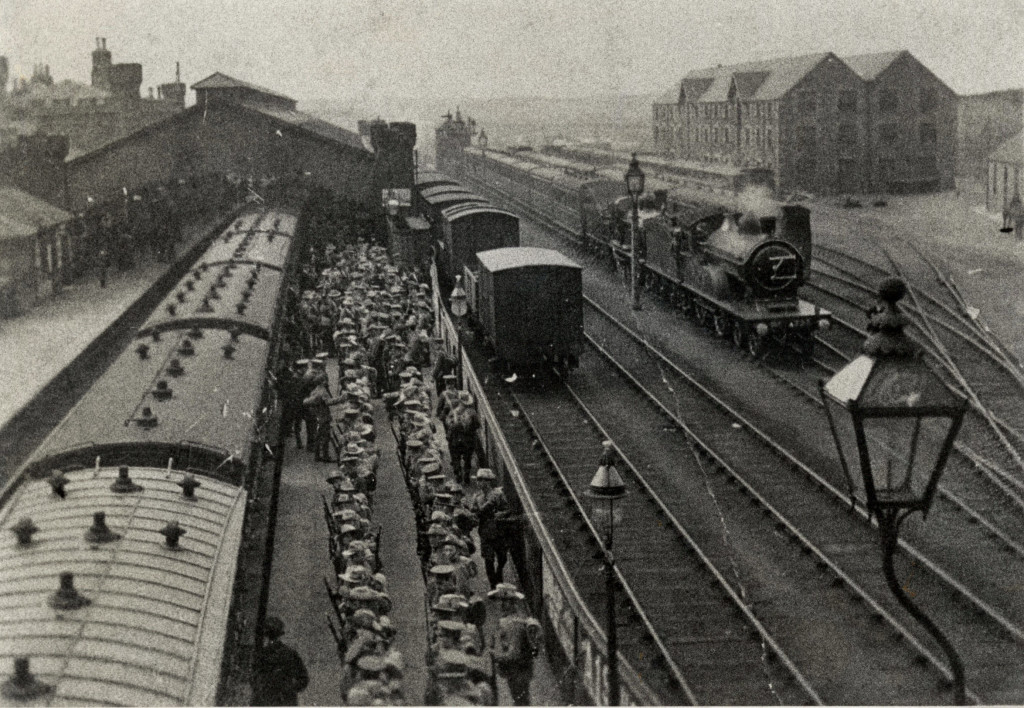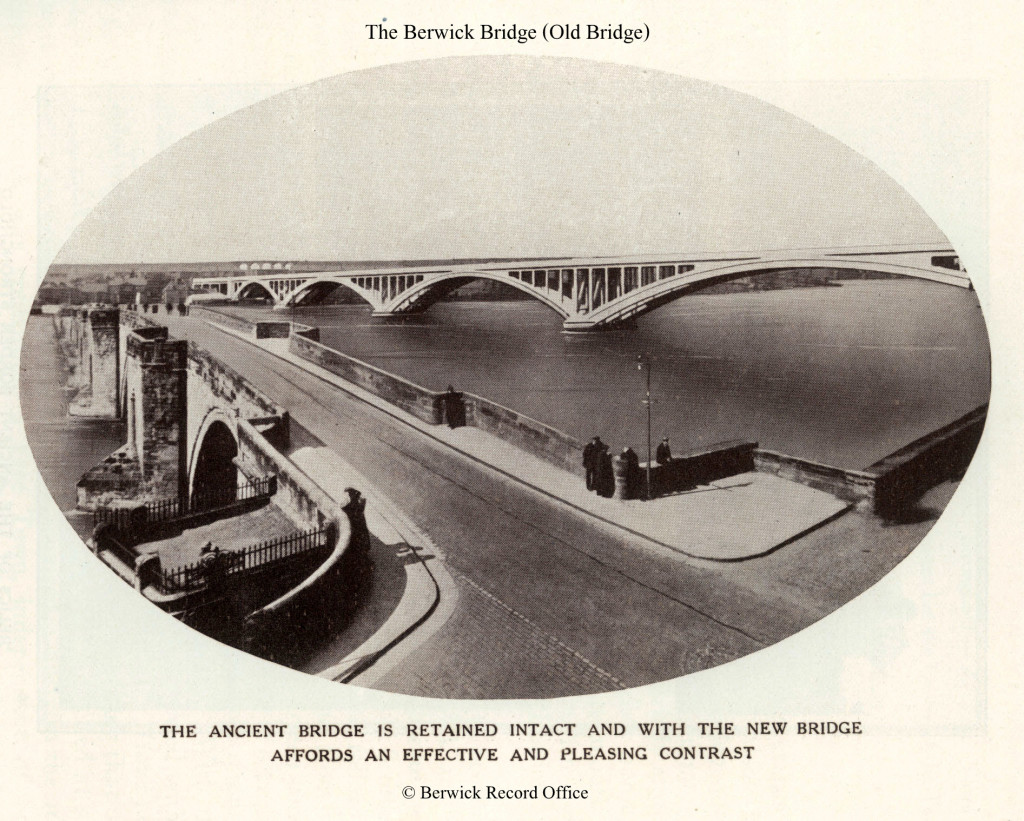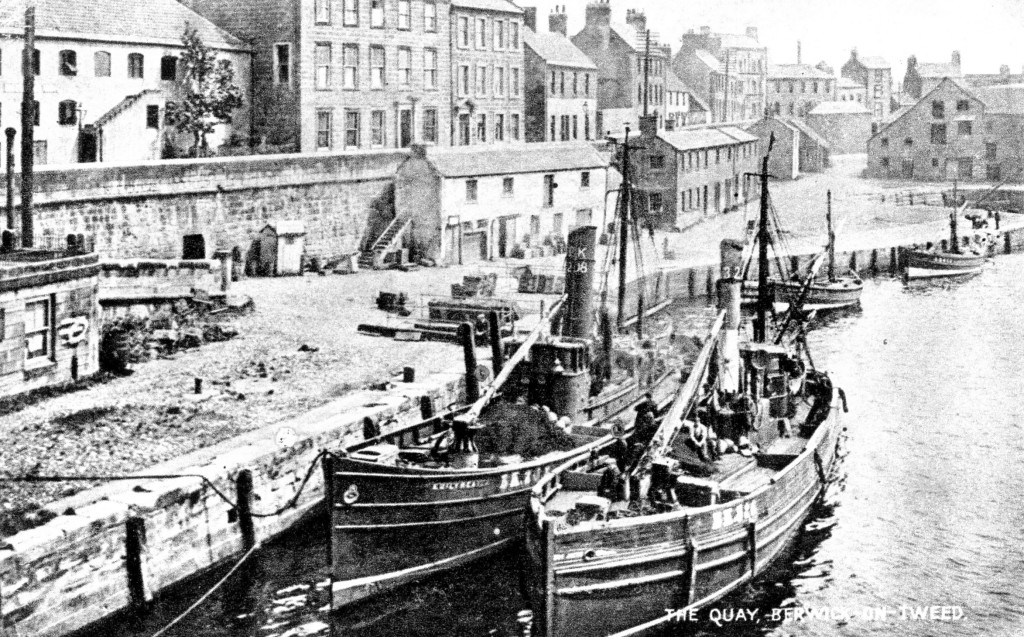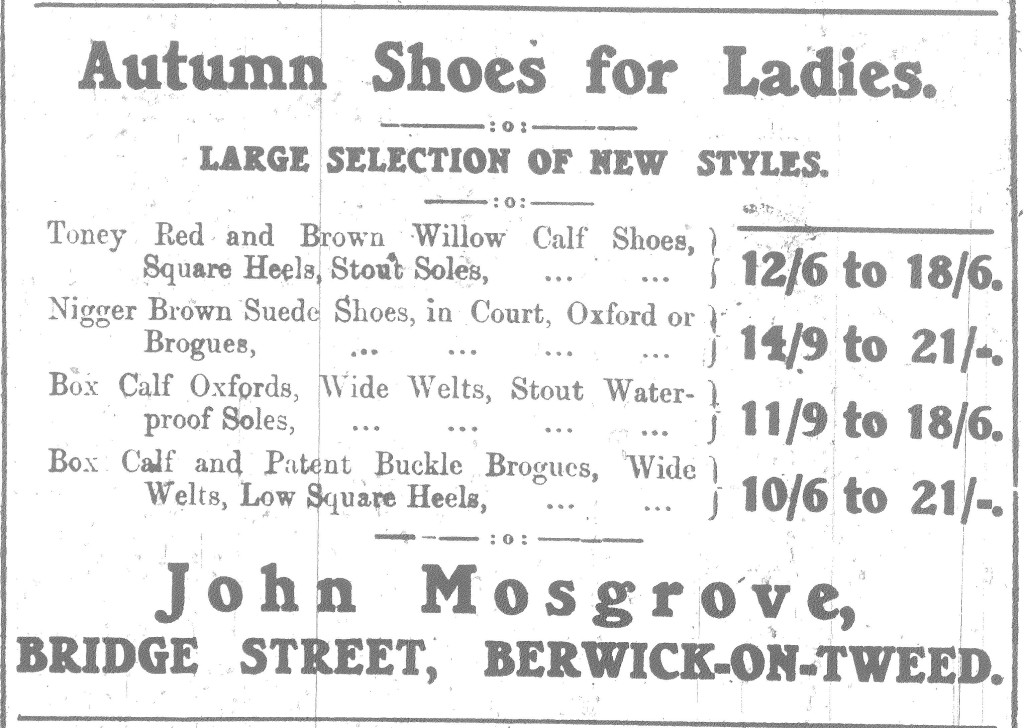BERWICK ADVERTISER, 29 OCTOBER 1915
REGRETTABLE SCENE AT BERWICK STATION
Ejection of recruiting sergeant
The ejection of a recruiting sergeant, dressed in full khaki uniform, and with the familiar bunch of coloured ribbons flowing from his cap, caused an unpleasant and regrettable scene at Berwick Station on Wednesday evening. He was a tall middle aged soldier with grey hair, bound south in a corridor train. The temporary loss of his pass was the cause of all the trouble the possessor having mislaid it amid quite a large collection of clothing which he carried. Had the soldier left the carriage quietly it would have been all right, but this he declined to do. He persisted in having another futile search for the missing ticket, and as the express could not wait he was requested to leave the compartment. This he was in no mind to do, and forcibly resisted. The station master ultimately entered the compartment, and with the assistance of other officials, succeeded in forcing the muscular warrior out, all his belongings being heaped on to the platform. It would have fared ill perhaps with Berwick’s stationmaster had he not had assistance at hand, as the brawny fellow in khaki was thoroughly aroused, and made an abortive effort to lay violent hands on whom he considered responsible for his ejectment.

Retreating, however, behind the open carriage door, and exclaiming to the discomfited soldier “stand off,” the stationmaster was able to elude the attentions of the angry soldier, and meanwhile some of the other station officials came in between. As the express glided out of the station on its southward journey the soldier found quite a number of sympathisers. “Aye,” exclaimed one woman, “that’s the way they treat the men that are asked to die for us.” The soldier, assisted by some boys, commenced to examine the contents of his luggage, chief attention being concentrated upon the contents of the kit bag which each man in the army possesses. After a short search a woman observed what she took to be the pass, and fortunately it turned out to be the much required parchment. It is much to be regretted that such a scene should be witnessed, and our correspondent thinks it might have been avoided had a little more tact and thoughtfulness been displayed. Would it not have been sufficient to have taken the name, address, and number of the gallant sergeant, wired to the next station where tickets are examined, and thus allowed him a chance of securing his temporarily lost ticket while en route? It seems incredible to think of such a deplorable incident occurring when the Government has taken over the charge of the railways. The station officials, no doubt, have a difficult task to perform, and, it is understood they have received strict instructions to allow no man in khaki to travel who cannot produce a pass. They were, therefore, presumably strictly carrying out the instruction laid down for their observance.
LOCAL NEWS
FEMALE ATTENDANTS WANTED for the Northumberland County Asylum, Morpeth. Applicants must be in good bodily health, not less than 5ft. 5in in height, and able to read and write. Wages begin at £19 5s per annum, with board, lodging, uniform and washing. Applications, stating age and height, to be addressed to the Medical Superintendent. At least two thoroughly satisfactory references as to character required; one must be from last employer. The appointment will be made subject to the provisions of the Asylums Officers’ Superannuation Act, 1909.
KNOCKED DOWN BY A MOTOR CAR. A rather serious accident befell Mrs Robertson, Spittal, while she was crossing the Old Bridge on Friday evening about 7.30. It appears that she was crossing from one side of the Bridge to the other pushing a perambulator containing her baby, when she was suddenly knocked down by a car driven by Mr D. Atkinson, dentist Berwick, and she was severely injured about the head. The child was knocked out of the perambulator but marvellously escaped being injured. Mrs Robertson was rendered unconscious and was conveyed in the car by Mr Atkinson to the Infirmary. She had recovered so far on Wednesday as to be removed to her father’s Mr John Renwick, Walkergate, Berwick. Mrs Robertson’s husband is serving at the front.
ITEMS OF INTEREST
MOTOR CYCLING – A motor cyclist who has put in a lengthy spell on active service in France writes : – The Dunlop tyres, extra heavy, 26 by 2½ by 2¼ , are doing splendid work, and on most of the machines the original tyres are still in use. The average mileage is at least 8000, traversed over terrible roads, yet the treads are still perfect. The back tyres are nearly as good as the front, due, no doubt, to the chain-cumbelt drive, which is the most flexible drive in use, and largely accounts for the excellent service done by the Dunlop belts, some of the originals being still on. This last point is one of great interest, possibly of debate.





